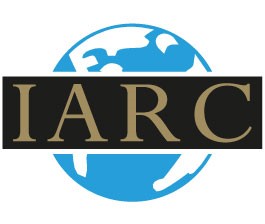Adventure Tourism Online Course
Adventure tourism is an exciting and challenging career-path. Whether you are interested in starting your own adventure tourism enterprise or working as a tour-guide or perhaps in back-up logistics or management, this course will provide you with the skills required to face the challenges, and ‘Live the Life’ that is this fast growing and exciting international Industry.
Many people have successfully turned their passion for sport, extreme sport, adventure, the wilderness, sailing, hiking, wildlife, history, diving, survival techniques, mountaineering; the list as endless as your imagination and the passions of your customers; into successful business enterprises that allow the adventure tourism entrepreneur the opportunity to take their own passion to a whole new level and profit as well.
Course Aims:
- Define the nature and scope of adventure tourism
- Identify types of adventure tours, and sources of information on them.
- Consider the requirements of managing an adventure tourism destination or service.
- Identify potential customers, customer needs and requirements in planning and conducting adventure tours.
- Identify various kinds of artificial environments for adventure tours, and the facilities typically provided at them.
- Discuss the requirements and problems associated with using natural locations for adventure tours.
- Identify ethical and environmental issues related to adventure tourism.
- Identify kinds of risk and strategies for reducing their negative impacts on customers and operators.
Get Free Info Pack
Get your free info pack by completing the form below.
Detailed Course Outline
This course is made up of a number of modules. Each of these has self assessment questions, a set task (practical homework) and an assignment which you can upload online. Select each module below to learn more.
There are 8 lessons in this course:
Scope and nature of Adventure tourism
- Introduction to adventure tourism
- Historical themes of adventure tourism
- Women travelers
- Adventure tourism experiences
- Motivating factors for adventure tourism
- Adventure activities
- Limitations and risks
- Artificial environments
- Non-physical adventure tourism
The Product: Sources and Types
- Types of adventure tourism
- Types of adventure locations
- Case Studies – New Zealand, India, Iceland, Africa and Brazil
- Sources of Information
Management
- Management Process
- Management Issues
- Staffing
- Training
- Transport
- Equipment Suppliers
- Media
- Voluntary Organisations
- Marketing
- Marketing Tools
- Seasonal Fluctuations
The Customer
- Adventure Tourism Customers
- Market Sector
- Tourist Motivation
- Conservation Tourism
- Adventure Tourist Behaviour
- Soft and Hard Adventurers
- Risk Taking
- Ecotourism
- Customer Expectations
Locations & Facilities - Artificial environments
- Artificial Environment Tourism
- Artificial Adventure Environments
- Advancement in Adventure Developments
- Examples of Artificial Adventure Tourism
- Advantages and Disadvantages of Simulated Adventure Tourism
- Classification of Artificial Adventure
Locations & Facilities - Natural
- Natural Environments
- Adventure Tourism in Natural Environments
- Wildlife Tourism
- Case Study: Nature-based Tourism in Antarctica
- Ecotourism
- Benefits of nature-based tourism
- Nature-based Ecotourism
- Locations and destinations
- Health benefits of nature
- Advantages and disadvantages of nature-based tourism
Ethics, Sustainability and Environmental impacts
- Introduction
- Social and cultural impacts
- Environmental impacts
- Economic impacts
Risk management & Insurance
- Some categories of risk
- Risk management strategies and plans
- Assessing the risk
- The risk management plan
- Consequences of an event happening
- Crisis management
- Insurance
When you have completed the lessons of your Certificate course, you will be given the option of taking the optional exam. It's okay if you don't want the exam, we still issue your Careerline Certificate. For Advanced Certificates however, the exam is compulsory (per module) and are included in the course fee.
Course Tutor(s)
Thea Roberts B.Comm., M.A.
Liselle Turner Bachelor of Business (Marketing), Diploma in Hospitality Management, Certificate IV in Training and Assessment
Chad Osorio B. Psych. Juris Doctor

Frequently Asked Questions
Can I pay in installments?
Yes! We offer great payment plans, however full payment up front is the cheapest. You can choose the best payment plan for you from the course page, or call us on 07 55368782 to talk to one of our course consultants for a custom plan.
Can I study from anywhere in the world?
We have many international students. Careerline's range of courses are suitable for any one, anywhere in the world.
Do I get a discount if I enroll in a second course?
Yes. You may claim a 5% fee discount when you enroll in a second course, and a further 10% off a three-course package.
Do I have to sit an Exam?
No. If you are enrolled in a Certificate course (100hrs), the exam is optional. You will be issued with a certificate which proves that you are competent in all units, if you choose not to sit the exam.
Do you have set start dates?
There are no set start dates, you may start at any time. Our courses are all self-paced. As our home page says, ‘Courses for Anyone, Anywhere, Anytime’. ‘Anytime’ includes the start time of your choice. However, we do encourage our students to submit assignments on a regular basis. Wherever possible, we suggest developing a study routine.

